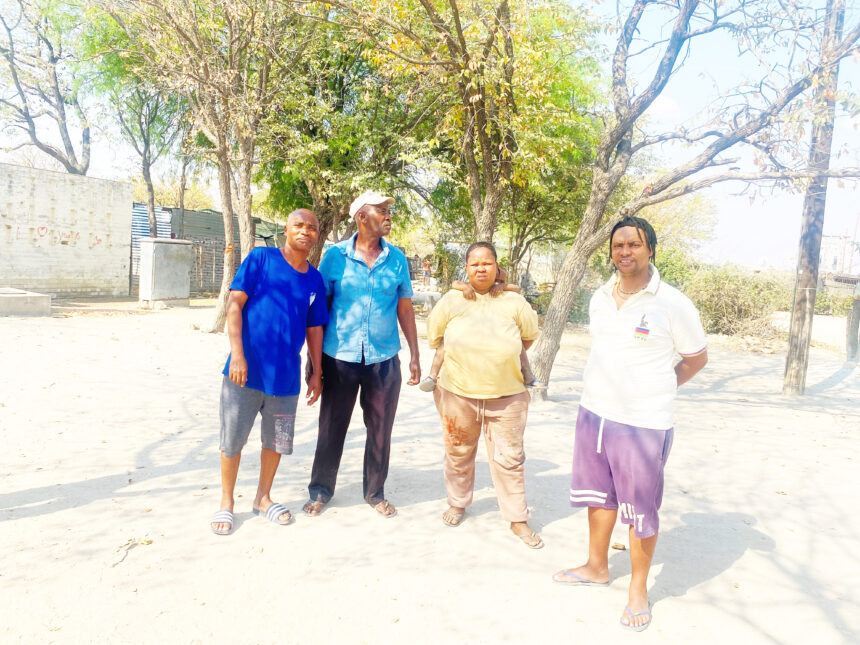OKAUKUEJO – The Hai//om San community of Ombika Anderson Gate in Etosha say they feel left out.
They are not happy, as they do not get all services and assistance from their constituency Uuvudhiya, and the region of Oshana, which they said is far from Ombika.
The community stressed that they feel hidden from Namibia and the rest of the world because they are enclosed by the Ministry of Environment, Forestry and Tourism.
The community is further infuriated by the national park’s gate which closes at 19h00, and they are not allowed to leave or return beyond the stipulated time.
Ancestral land
A senior member of the community at Ombika, Albertus Komob, said Etosha is situated within the Hai//om’s ancestral land.
He emphasised that they were the first people to settle in Namibia, including in what is now Etosha National Park, and are known for their deep connection to the land and rich cultural heritage. In 1954, the Hai//om were evicted from Etosha by the then-South African apartheid regime. This was done to eliminate their traditional hunting practices. “We lived with the South African [government] for long, but now the government wants to evict us completely from Etosha,” he said.
Hidden
The community’s pain is deeper than meets the eye. The people of Ombika said they feel like living in a confined space within enclosed structures made of long poles with no space so that they cannot be seen, especially by the tourists who are coming to Etosha.
“If you see our enclosure, you wouldn’t guess there are people living inside. The government does not want the world to know that the Bushman still lives in Etosha,” they charged.
They said their community has not had electricity since they were relocated by the South Africans, except for the three houses built by the colonial government.
They accuse the government of not wanting to develop their area because they want to evict them from Etosha. It is further alleged that Cenored declined to electrify Ombika because they fear that they would not pay for electricity, and that they would vandalise property.
“We are not allowed to sell or make any kind of business in our area, and would be charged if we attempted it,” they stated.
Another member of the Hai//om, Petrus Andreas (47), said he lived there his whole life, but is also not happy about the treatment they are getting from the government.
Right of reply
Oshana regional governor Elia Irimari said the community was evicted from Etosha long ago to stop their hunting of wild animals.
“They are enclosed inside to be protected because they live at the edge of Etosha, and we are talking about wild animals,” he noted.
The governor said the government bought land where most of them are making a living today, but a few stubbornly refused to
move.
Unfortunately, the government cannot prioritise certain individuals over the whole country, he continued. “The resources of the country belong to the government, and need to be shared among Namibians,” he said.
Waste management
The community members said they have been living with waste and leaking sewage inside their enclosure for some time now.
Responding to the allegations, Uuvudhiya constituency councillor Timoteus Shivute said if the issue had been communicated to him earlier, his office would have intervened decisively. He said he informed the management of Etosha to fix the drainage, and will now inform them about the sewage as well.
Employment
Although some community members claim the government is not providing employment, Shivute said procedures should always be followed. “Provisions are always made when it comes to giving employment to the marginalised community, and I really try to employ them,” he sdded.
He narrated that not so long ago, they had chosen individuals with at least a grade eight to grade 12, and placed them at Cosdec Ondangwa to further their studies while receiving a monthly allowance.
“[The] majority are employed by the lodges around Okaukuejo and Ombika as guards, and are always given opportunities through different tenders,” he said.
Shivute noted that his office, through the office of the governor and other ministries, attempted to do renovations, but vandalism is rampant in the Hai//om community.
Land
On an issue which remains a thorn in the flesh of most Namibians, Komob said they do not have possession of their ancestral land.
They said they want a place they can call home in Etosha because their ancestors lived there, just like everyone else in Namibia.
“Every tribe in Namibia has residence on their ancestral land. So, why are we being removed from ours?” they asked.
On this, Shivute said discussions were held between the government and the chief of the Hai//om people, with the chief suggesting that the government should give them land where they can reside. The government went ahead and bought them farms.
Some were even given livestock to start a living and own land there. “Most of them relocated to those farms, and are making a living there. The remaining ones are those who refused to relocate, and are now complaining,” she elucidated.
Marginalised
Some community members have expressed that they no longer want to be labelled as marginalised, believing the government is not doing enough to help them escape poverty and achieve recognition as equals in Namibia.
They said Black people were previously labelled as marginalised, but through hard work and support, they are now considered equal to everyone else in the world. “Until when will we be labelled marginalised?” they asked. Shivute said the government is making efforts to assist marginalised communities, even to the extent of transporting their children to school in Okaukuejo. However, the challenge arises when they are invited to meetings about their progress and development, but many do not attend. –wakudumoauleria@gamil.com



